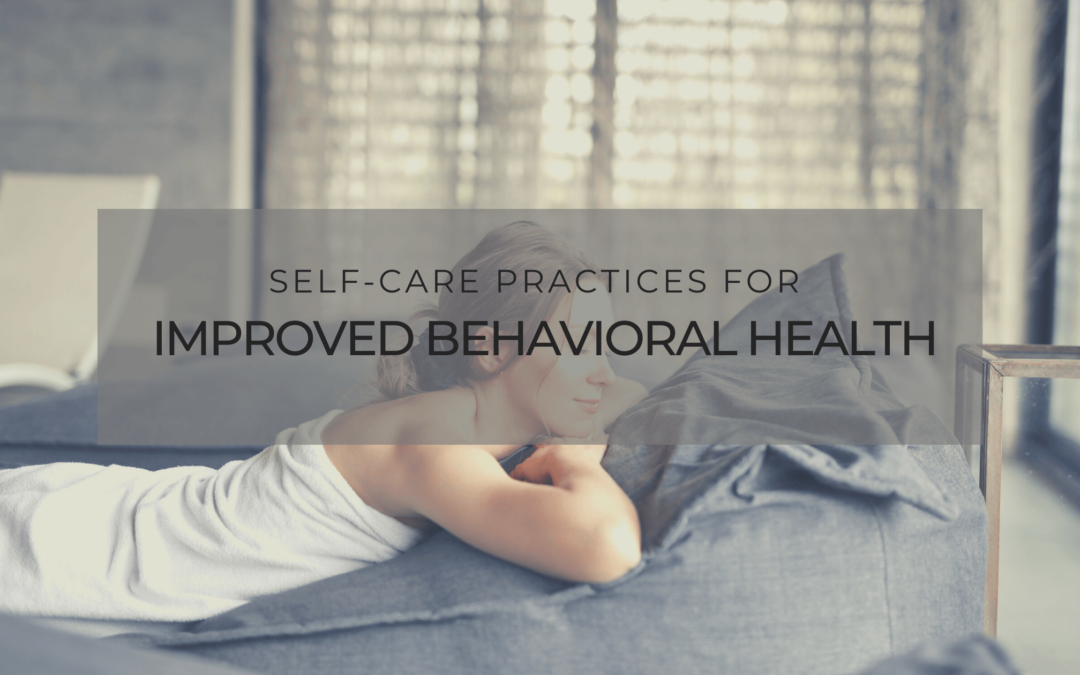In the hustle and bustle of modern life, it’s easy to prioritize external responsibilities over our internal well-being. However, neglecting our mental health can have detrimental effects on our overall behavioral wellness. This is where self-care practices come into play, offering a path toward improved behavioral health.
Understanding Behavioral Health
Behavioral health encompasses our psychological, emotional, and social well-being. It can effect how we think, feel, and act. Stress, depression, anxiety, and other conditions can significantly impact our behavior, relationships, and daily functioning. Integrating self-care into our routines becomes crucial in managing and enhancing our behavioral health.
Mindfulness and Meditation
Two of the most effective self-care practices for behavioral health are mindfulness and meditation. Taking a few moments each day to practice mindfulness allows us to be present, acknowledge our thoughts and feelings without judgment, and reduce stress. Whether it’s through guided meditation, deep breathing exercises, or simply focusing on the present moment, mindfulness can positively influence our behavior by promoting a sense of calm and clarity.
Prioritizing Sleep
Sleep plays a pivotal role in our behavioral health. Lack of good and restful sleep can lead to irritability, poor concentration, and heightened stress. A stable sleep schedule and a relaxing bedtime routine are essential self-care practices. Try to get 7-9 hours of sleep each night to support better emotional regulation and cognitive function.
Physical Activity and Nutrition
Exercise isn’t just beneficial for our physical health; it significantly impacts our mental well-being. Regular physical activity releases endorphins, chemicals in the brain that act as natural mood lifters. Maintaining a stable diet rich in nutrients can positively impact our behavioral health, fueling optimal brain function.
Setting Boundaries
Learning to set boundaries is a crucial aspect of self-care for improved behavioral health. Saying no when necessary, establishing limits on work or social commitments, and prioritizing personal time can prevent burnout and reduce stress levels. Healthy boundaries empower us to focus on activities that nurture our mental and emotional well-being.
Seeking Support and Connection
Human connection plays a vital role in our behavioral health. Cultivating supportive relationships and seeking help when needed are essential self-care practices. Whether through therapy, support groups, or confiding in trusted friends or family members, having a support system can provide valuable emotional support and guidance.
Embracing Hobbies and Relaxation
Engaging in activities that bring happiness and relaxation is fundamental to self-care. Whether reading, painting, gardening, or practicing a musical instrument, dedicating time to hobbies reduces stress and enhances overall well-being. Prioritizing moments of relaxation fosters a positive mindset and helps manage behavioral health challenges.
Prioritizing self-care practices is not selfish; it’s a necessary investment in our behavioral health. We take proactive steps toward enhancing our emotional and psychological well-being by incorporating mindfulness, adequate sleep, physical activity, setting boundaries, seeking support, and embracing hobbies into our routines. Remember, small, consistent efforts toward self-care can yield profound and positive changes in our behavioral health.
